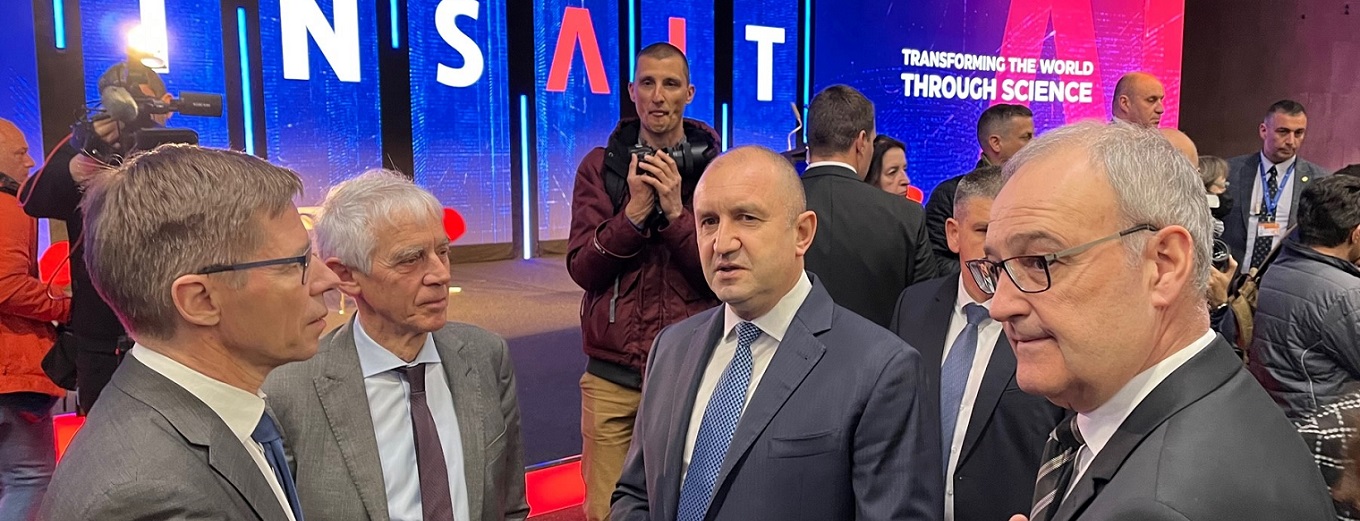The ETH Zurich and EPFL were involved in the creation of the Bulgarian Institute for Computer Science, Artificial Intelligence and Technology (INSAIT).
The idea to create the Institute for Computer Science, Artificial Intelligence and Technology (INSAIT) in Bulgaria emerged from Martin Vechev, of a Bulgarian origin and a professor at the ETH Zurich in Switzerland. After almost three years of collaboration with Olivier Küttel, the Delegate of the President for International Affairs at the Swiss Federal Institute of Technology Lausanne (EPFL), and the Bulgarian government, the AI centre was launched in April 2022 (see SwissCore article) and is scheduled to open in Sofia in September 2022. Professors from both Swiss institutions as well as from prestigious institutions like MIT, Berkeley, Princeton, Yale, Technion, Cornell, IST Austria have supported the construction of INSAIT by sharing their scientific expertise and giving advice. Moreover, several professors from ETH Zurich and EPFL are members of either the Supervisory Board or the Advisory Board, meaning that they will continue contributing to the development of the AI centre by being actively involved. Although the institute will be part of Sofia University, it benefits from an independent status that allows a certain freedom, for instance, regarding working conditions. In total, about 300 people are expected to be employed at INSAIT: 25 to 30 will be professors and researchers, while the remaining will be PhD students, junior researchers, and postdocs. Besides, thousands of master’s students will be enrolled in computer science programmes.
Since Eastern Europe has been facing brain drain for many years due to a lack of facilities, funding and support the establishment of such an institute can have the potential to improve the situation by creating new opportunities for the most promising young researchers. Indeed, only 2% of the European Research Council (ERC) grants from Horizon 2020 were allocated to Eastern European countries (when adding numbers for EU-13 and comparing to the total, including associated countries), which clearly shows that researchers move to the West to study and advance their careers. In Bulgaria itself, nearly 30’000 Bulgarians leave the county every year in search of better prospects. Therefore, INSAIT wants to address this problem by bringing the best minds to Bulgaria and becoming a leading international institute. “Our objective is that, within the next two years, researchers from INSAIT will apply for and get ERC grants”, notes Olivier Küttel.
One of the ways to encourage deep tech talent to stay in the country is to establish a tenure-track system: Junior faculty members join the tenure track as assistant professors for 5-7 years with the opportunity to develop a world-class research programme and form a research group. Upon completion of the tenure track, a final scientific evaluation determines if a permanent position is granted. This system, long known in the U.S. and rolled out across the university at EPFL in 2022, is nowadays becoming popular in many other European academic institutions. It enables to increase the institution’s attractiveness by promoting the career of young talent. Furthermore, Olivier Küttel already had some experience in transposing the programme in Eastern countries since he participated in the Tenure-Track Pilot Programme in Croatia, which started in 2019 and was thus able to provide mentorship. In addition, the INSAIT will offer outstanding working conditions, not only in terms of salaries and packages, similar as those in leading institutions, but also by cooperating with the best researchers and professors in the world. In this context, professors at ETH Zurich and EPFL can choose to teach at the institute – INSAIT has announced on 31 May 2022 the development of an international doctorate programme with professors from ETH Zurich and EPFL but also from MIT and Yale. Besides, they can supervise a PhD student or start a research project with academic and industrial partners from Bulgaria. The involvement of ETH Zurich and EPFL professors and researchers as mentors will also provide attractive career prospects for young scientific and technological talent. Swiss institutions will benefit from having established this institute as it provides a network of excellence and the possibility to deepen international collaboration in the field. Ultimately, it shows Switzerland’s implication in the European research area and its commitment being an active and reliable partner.

